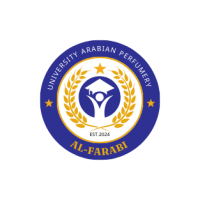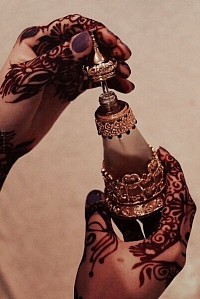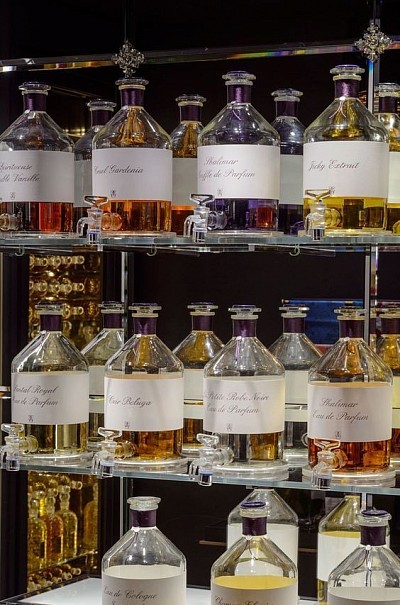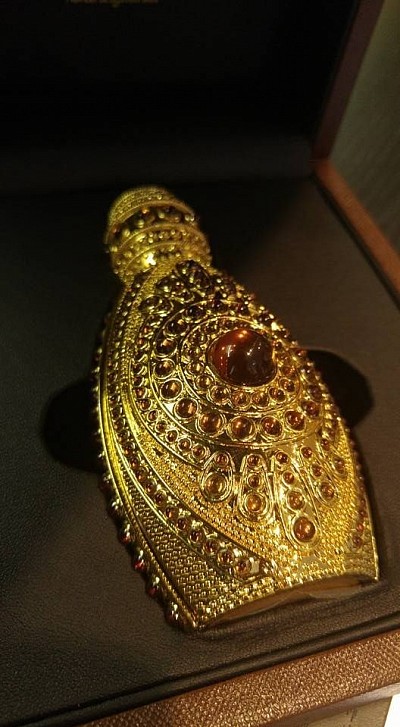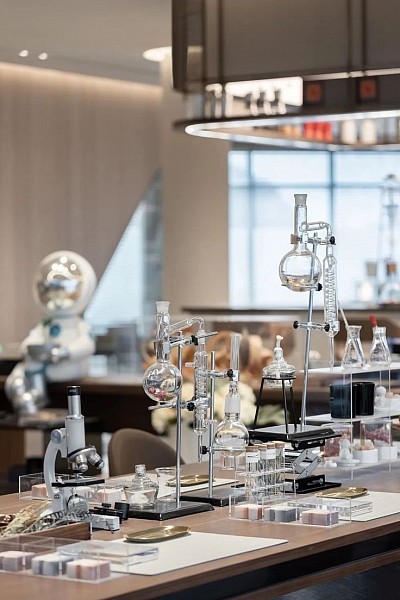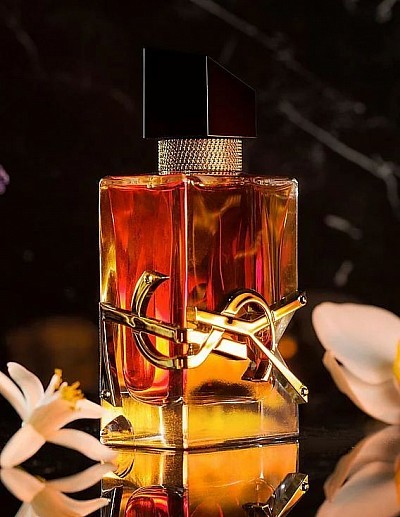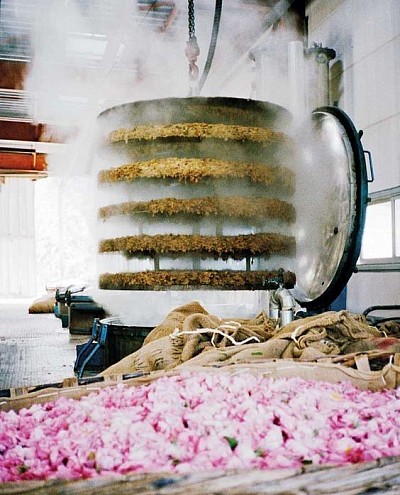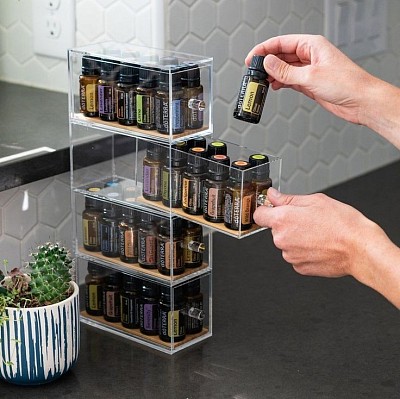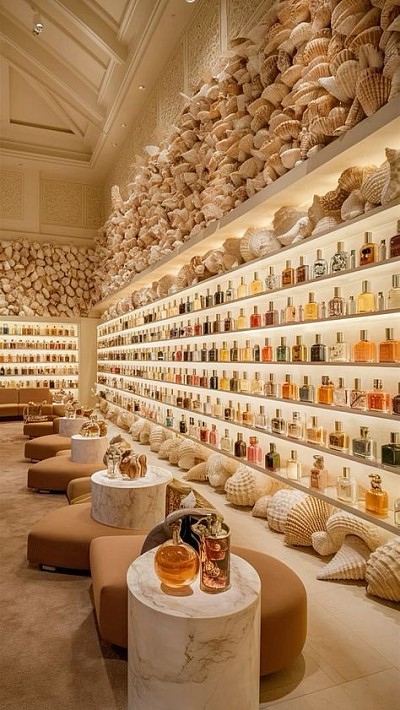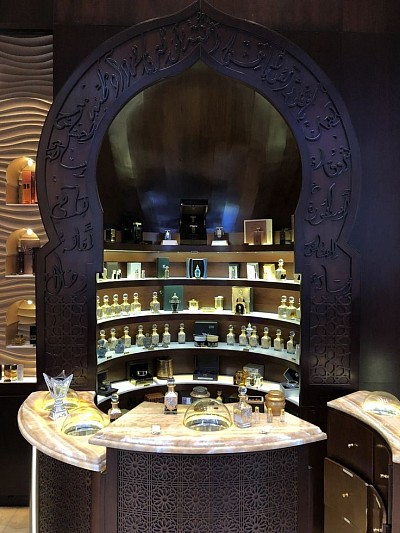Our course.
Perfume Basics.
1-month course:
This course provides a foundational understanding of the art and science of perfumery. Students will explore the history of perfume, the different types of fragrances, and the basic techniques used in perfume creation. The curriculum covers:
History of Perfumery: An overview of the evolution of perfume from ancient civilizations to modern times.
Types of Fragrances: Introduction to the different categories of perfumes, including floral, oriental, woody, and fresh.
Basic Perfume Ingredients: Study of natural and synthetic raw materials used in perfume making.
Perfume Creation Techniques: Hands-on workshops on blending and formulating fragrances.
Scent Evaluation: Methods for assessing and describing fragrances.
Regulations and Safety: Overview of industry regulations and safety practices in perfume production.
Students will gain practical experience through laboratory sessions and will have the opportunity to create their own basic fragrances. The course is designed to provide a solid foundation for those interested in pursuing further studies or a career in perfumery.
Advanced Fragrance Creation Methods.
2-month course:
This course delves into advanced techniques and methodologies in fragrance creation. It is designed for students who already have a basic understanding of perfumery and wish to deepen their knowledge and skills. The curriculum includes:
Advanced Blending Techniques: Exploration of complex blending methods to create unique and sophisticated fragrances.
Molecular Perfume Design: Study of the molecular structure of fragrance compounds and their interactions.
Innovative Ingredients: Introduction to new and emerging raw materials in perfumery.
Artistic Fragrance Composition: Techniques for creating olfactory art and narrative-driven scents.
Perfumery Software Tools: Use of digital tools and software for fragrance formulation and analysis.
Case Studies: Analysis of iconic and contemporary perfumes, understanding their composition and market success.
Students will engage in practical projects, working closely with experienced perfumers to create advanced fragrance compositions. This course aims to enhance the creative and technical abilities of aspiring perfumers.
Arabic Perfumery: Traditions and Modernity.
6-month course:
This course explores the rich heritage of Arabic perfumery and its evolution into the modern era. Students will learn about traditional practices and contemporary innovations in Arabic fragrance creation. The curriculum covers:
History of Arabic Perfumery: Study of the origins and development of perfumery in the Arab world.
Traditional Ingredients: In-depth exploration of key ingredients such as oud, rose, and amber.
Cultural Significance: Understanding the role of perfumery in Arabic culture and rituals.
Modern Innovations: Examination of how traditional practices are being integrated with modern techniques.
Artisan Perfumery: Hands-on workshops on creating traditional Arabic perfumes using age-old methods.
Contemporary Arabic Fragrances: Analysis of modern Arabic perfumes and their impact on the global market.
Students will have the opportunity to create their own Arabic-inspired fragrances, blending tradition with innovation.
Perfume Chemistry and Technology.
1-month course:
This course provides a comprehensive understanding of the chemical principles and technological advancements in perfumery. Students will learn about the science behind fragrance creation and the latest technologies used in the industry. The curriculum includes:
Organic Chemistry: Study of the chemical structure and properties of fragrance molecules.
Analytical Techniques: Methods for analyzing and characterizing fragrance compounds.
Synthetic and Natural Ingredients: Comparison of synthetic and natural raw materials in perfumery.
Formulation Technology: Advanced techniques for formulating and stabilizing fragrances.
Quality Control: Procedures for ensuring the consistency and safety of fragrance products.
Technological Innovations: Exploration of cutting-edge technologies such as biotechnology and nanotechnology in perfumery.
Students will gain hands-on experience through laboratory work and research projects, preparing them for technical roles in the fragrance industry.
Perfume Business.
3-month course:
This course covers the commercial aspects of the fragrance industry, providing students with the knowledge and skills needed to succeed in the business of perfumery. The curriculum includes:
Market Analysis: Study of the global fragrance market, industry trends, and consumer behavior.
Business Strategy: Development of business plans and strategies for perfume brands.
Product Development: Processes for creating and launching new fragrance products.
Distribution Channels: Understanding the different channels for distributing and selling perfumes.
Financial Management: Budgeting, pricing, and financial planning for perfume businesses.
Legal and Regulatory Issues: Overview of the legal and regulatory framework governing the fragrance industry.
Students will work on practical projects and case studies, gaining insights into the real-world challenges and opportunities in the perfume business.
Branding and Marketing of Perfume Products.
6-month course:
This course focuses on the principles and practices of branding and marketing in the fragrance industry. Students will learn how to create and promote successful perfume brands. The curriculum includes:
Brand Development: Techniques for building and maintaining a strong brand identity.
Marketing Strategies: Development of marketing plans and campaigns for perfume products.
Digital Marketing: Use of digital platforms and social media for promoting fragrances.
Consumer Engagement: Methods for engaging and retaining customers.
Market Research: Techniques for conducting market research and analyzing consumer preferences.
Case Studies: Analysis of successful perfume brands and marketing campaigns.
Students will create their own branding and marketing plans for a perfume product, applying the concepts learned in the course.
Raw Materials and Their Processing.
1-month course:
This course provides an in-depth understanding of the raw materials used in perfumery and the processes involved in their extraction and processing.
The curriculum includes:
Natural Ingredients: Study of natural raw materials such as essential oils, resins, and absolutes.
Synthetic Ingredients: Exploration of synthetic fragrance compounds and their role in modern perfumery.
Extraction Techniques: Methods for extracting and processing raw materials, including distillation, solvent extraction, and CO2 extraction.
Quality Assessment: Techniques for evaluating the quality and authenticity of raw materials.
Sustainability and Ethics: Considerations for sustainable and ethical sourcing of raw materials.
Case Studies: Examination of key raw materials and their impact on fragrance creation.
Students will participate in practical workshops and laboratory sessions, gaining hands-on experience with raw materials and extraction techniques.
Perfume and Health.
3-month course:
This course explores the relationship between fragrances and health, focusing on the therapeutic and well-being aspects of perfumery. The curriculum includes:
Aromatherapy: Principles and practices of aromatherapy, including the therapeutic use of essential oils.
Psychological Effects: Study of the psychological and emotional impact of fragrances.
Physical Health Benefits: Exploration of the physical health benefits of certain fragrances and essential oils.
Clinical Applications: Use of fragrances in clinical settings, including stress reduction, pain management, and mood enhancement.
Safety and Regulation: Overview of safety considerations and regulatory guidelines for therapeutic fragrance products.
Research Studies: Examination of scientific research on the health effects of fragrances.
Students will gain practical experience in creating therapeutic fragrance blends and conducting research on the health benefits of perfumes.
Analysis and Forecasting of Trends in Perfume.
6-month course:
This course focuses on the analysis and forecasting of trends in the fragrance industry, providing students with the skills to anticipate and respond to market changes. The curriculum includes:
Trend Analysis: Techniques for identifying and analyzing emerging trends in perfumery.
Consumer Insights: Understanding consumer preferences and behavior.
Market Forecasting: Methods for predicting future market trends and demand for fragrances.
Innovation and Adaptation: Strategies for developing innovative products that align with market trends.
Competitive Analysis: Examination of competitors and their impact on market dynamics.
Case Studies: Analysis of past and current trends in the fragrance industry.
Students will work on projects to analyze and forecast trends, developing insights and strategies for successful product development.
Creating a Unique Perfume Brand.
1-month course:
This course provides students with the knowledge and skills needed to create and launch a unique perfume brand. The curriculum includes:
Brand Concept Development: Techniques for developing a unique brand concept and identity.
Product Design: Processes for designing and formulating signature fragrances.
Packaging and Presentation: Importance of packaging design and presentation in creating a strong brand image.
Marketing and Promotion: Strategies for marketing and promoting a new perfume brand.
Business Plan Development: Creating a comprehensive business plan for launching and managing a perfume brand.
Case Studies: Analysis of successful perfume brands and their strategies.
Students will work on creating their own perfume brand, from concept development to marketing and business planning, culminating in a final project that showcases their unique brand.
